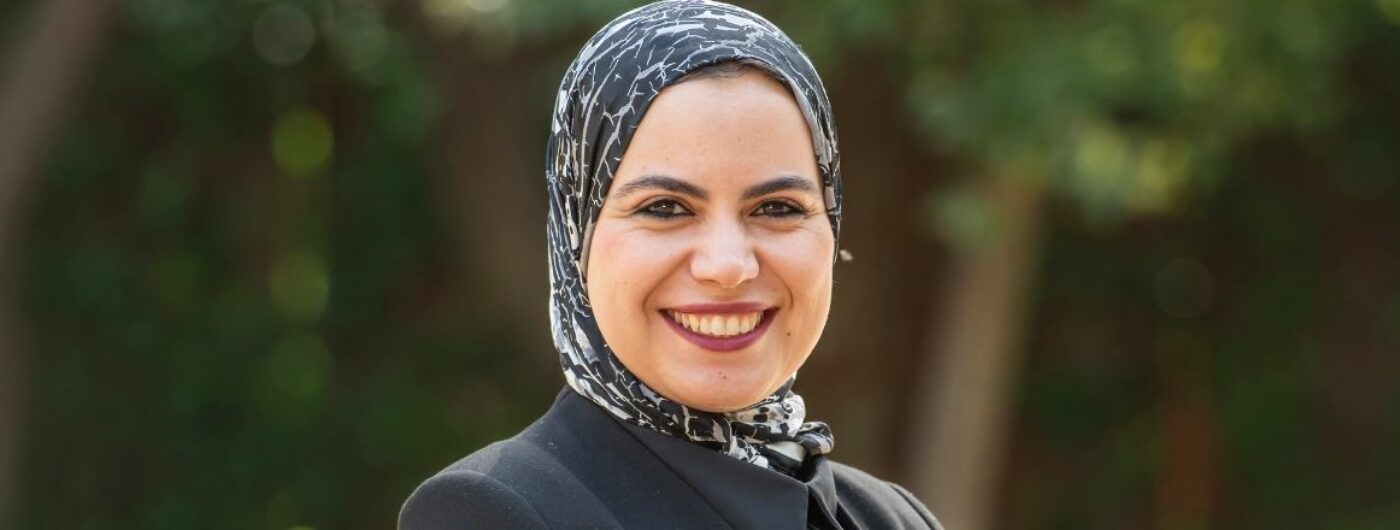
MYCN: Young People leading the fight against climate change
“Young people are concerned for their future, but they don’t have the tools to express and address those concerns.”
Born and raised in Tangier, Hajar Khamlichi is Mediterranean through and through – but she’s not blind to the region’s challenges. “The Mediterranean combines all the problems that one region can have,” she laughs. “Social, political, economic, environmental…But we also have a lot of young people, and they can be a huge source of energy and a driving force for real change.”
Hajar is the President and co-founder of the Mediterranean Youth Climate Network (MYNC), which represents 22 Mediterranean countries and consists of NGOs and youth organisations working on climate action and sustainability awareness. She stumbled upon her passion for environmental issues unexpectedly during her studies. Environmental Engineering was a new branch of study at the time. “In the beginning I wasn’t really involved with any environmental theme,” she explains. “I was studying a scientific curriculum. But when I started discovering environmental issues and challenges, and the engineering part of solutions, I felt really connected to it. I realised that I have the possibility to make a change through my professional work.”
Later, working on combatting industrial pollution in a utilities company, she came to a realisation. “I decided during those 10 years that working with the private sector is not enough. To make real change, you need involvement from the regulatory and policy sides, as well as private sector and civil society.” She began to get involved in civil society activities and volunteering with local associations. “It was more energy-consuming,” she says, “but rewarding, because you invest all that time and energy and you give some added value at the local level.”
When the MedCOP came to Tangier in 2016, Hajar was involved in organizing the first Mediterranean Youth Climate Forum, which later became the MCYN. “We need real, earnest cooperation in order to address these issues, not just trans-nationally between governments, but sub-nationally, between cities, and between civil society at all levels. We want the MYCN to act as a bridge between civil society, especially young people, and the Mediterranean region.”
The network aims to strengthen the regional integration of initiatives led by Mediterranean young people and support the emergence of new local and regional actions, while increasing awareness, influencing climate policy, and promoting youth participation in climate negotiations and decision-making processes. “Our ambition is to create an ever-wider network of youth associations in the Mediterranean region,” Hajar explains, “so that there can be an exchange of ideas, challenges and good practices.”
At its heart, the MYCN is born of a firm belief that young people need to be able to understand and participate in public policy.
“We need to help young people understand policymaking so that they can be involved in the management of problems, not just in identifying them. We need them to engage with the issues so that when they reach adulthood, they will be ready to take on these challenges.”
The MYCN has participated in high-level meetings such as the COP and COY, and in different consultation processes by institutions such as the EU, UfM and UN ESCWA. They have run online workshops and seminars during the pandemic, though the inability to meet in person has proved difficult, and many members of the network have dropped their involvement in order to focus on work or other areas of life. But Hajar is hopeful about the future: “Policymakers and politicians come and go, but the youth commitment and engagement will still be there. We want this to be an intergenerational movement for social justice – I want my kids one day to be active in the MYCN!”
The UfM has supported the MYCN from its inception, giving institutional backing to bolster its ability to take action and be heard. “Being a youth organisation and wanting to take a step further in delivering your opinion to local governments, it’s never easy,” Hajar says. “UfM support gives us more credibility in front of our national governments, and gives more visibility. Otherwise it wouldn’t be possible for us to make a lot of change. Now other organisations ask us for our position or statements on their regional policies, and even the UN Secretary General has recognized the importance of young people in climate action.”
For Hajar, climate change is today’s most important challenge, but she remains cautiously optimistic. “We have never had so many civil society organisations, individuals and campaigns mobilising the skills, experience and finance needed to deliver societal change. We need to be careful, we need to watch how commitments and national targets are implemented locally, how finance will be unlocked and invested, but I am optimistic for climate action in the Mediterranean. Young people are a key lever for changing policies and progressing towards a sustainable future for all.”
Read more:
